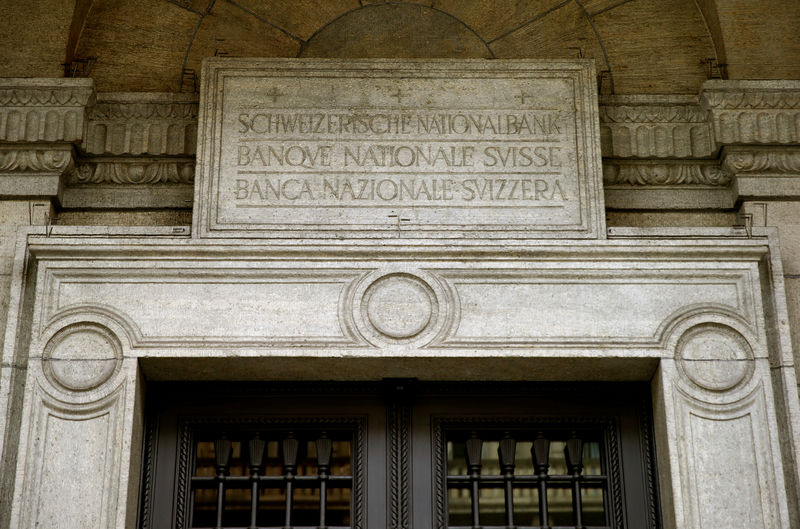(Bloomberg) -- Terms of Trade is a daily newsletter that untangles a world embroiled in trade wars. Sign up here.
The Swiss National Bank may have intervened to tame the franc’s rise, with record-high sight deposits pointing to currency market activity.
The cash commercial banks hold with the central bank, which economists consider an early indicator of SNB moves in foreign exchange markets, climbed 0.3% from the previous week to 583 billion francs ($597 billion) as of Aug. 2, figures released on Monday showed. That’s the second consecutive sizable increase.
“It does suggest interventions,” said Credit Suisse (SIX:CSGN) Group AG economist Maxime Botteron, though given the time transactions take to settle, the activity may have taken place in the week ending July 26.
A spokeswoman for the SNB declined to comment on the sight deposit figures.
With the franc at a two-year peak against the euro, trading as high 1.0876, investors are keeping a close watch for clues of possible interventions by the central bank to prevent the currency’s strength from hitting Swiss exporters.
Botteron said he expected the next set of sight deposit figures to show an increase as well. Yet because the volumes aren’t large, “it’s not yet a situation that’s nerve-wracking for the SNB.”
Switzerland’s central bank has sought for years to take on the franc’s strength with currency market interventions, and also has a deposit rate of minus 0.75% in force to maintain the yield spread with the euro area.
Yet the Federal Reserve’s interest rate reduction and the prospect of more easing in the euro area have led to a strengthening of the franc, raising the prospect of the SNB -- whose policy rate is already the lowest of any G10 central bank -- cutting rates too.
“It’s important that the SNB remain unpredictable in its strategy” and doesn’t determine a pre-determined level in the exchange rate, according to St. Galler Kantonalbank Chief Investment Officer Thomas Stucki. Given the even less desirable effects of an interest rate cut, an expansion of the SNB’s balance sheet is the “lesser evil.”
